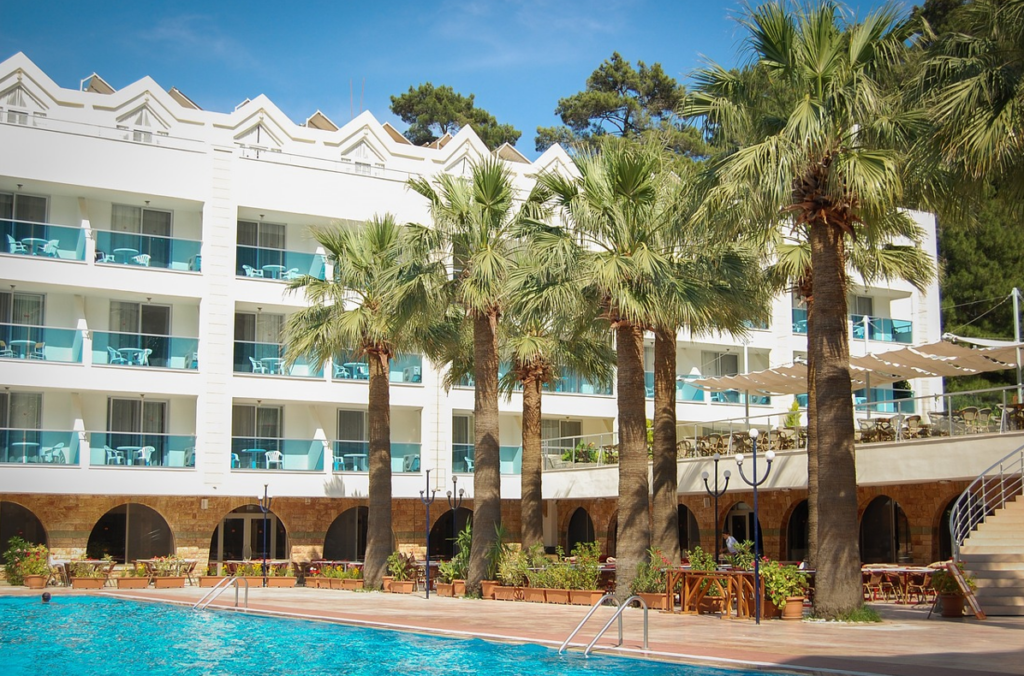The Importance of Social Media, Websites, and Blogs for the Hospitality Industry.
In today’s digital age, the hospitality industry is experiencing a seismic shift in how it connects with potential guests. Social media platforms, websites, and blogs are no longer optional tools for marketing and brand exposure – they are essential. For any hospitality business, from small boutique hotels to large international chains, having an online presence is crucial for visibility and success. Without these digital assets, potential guests may never even know a business exists, let alone the unique offerings it provides. In this article, we’ll explore the need for these platforms and how they help the hospitality industry reach people looking for holiday accommodation.
Why is an Online Presence Crucial?
The hospitality industry is highly competitive, with countless options for travelers worldwide. Whether it’s a cozy guesthouse, a luxury resort, or a family-friendly Airbnb, people have endless choices when it comes to booking accommodation. So, how can a business stand out? The answer lies in a robust online presence, specifically through social media, websites, and blogs.
Social Media Exposure
Social media platforms like Instagram, Facebook, and TikTok have become invaluable tools for showcasing holiday destinations and accommodation offerings. Guests no longer rely on traditional travel agents to discover their next vacation spot. Instead, they turn to social media for inspiration and recommendations.
Visual Appeal:
Platforms like Instagram are perfect for showcasing stunning visuals of your property and its surroundings. With captivating photos and videos, you can attract travelers who are drawn to the beauty of your location.
Engagement:
Social media allows businesses to directly engage with potential customers through comments, DMs, and polls. This two-way communication builds trust and helps potential guests feel more connected to your brand.
Influencer Marketing:
Collaborating with travel influencers can expand your reach exponentially. Influencers have large, dedicated followings who trust their recommendations, which can be a powerful tool for attracting new guests.
User-Generated Content:
Encouraging guests to share their experiences and tag your property helps spread the word organically, fostering a sense of community around your brand.
Websites for Credibility and Information
While social media is great for exposure, a dedicated website is essential for providing in-depth information and establishing credibility. Your website acts as the digital storefront for your hospitality business.
Booking Engine:
A well-designed website often includes an integrated booking engine, allowing guests to check availability, make reservations, and even access special offers directly. This eliminates the need for third-party booking platforms and increases your direct bookings.
Location and Amenities Information:
Travelers need to know where your property is located, the facilities available, and the surrounding area. A website offers a central place for this information, including maps, directions, and a list of amenities such as Wi-Fi, pools, or fitness centers.
Customer Reviews and Testimonials:
A website is the ideal place to showcase positive guest reviews and testimonials. Many travelers rely on peer reviews when making decisions about where to stay, so featuring them prominently on your website can build trust and encourage bookings.
Contact Details and Support:
A website provides easy access to contact information, including phone numbers, email addresses, and live chat features. Quick and reliable communication is essential in today’s fast-paced world of travel planning.
Blogs for Content Marketing and SEO
Blogs play a critical role in both attracting new customers and improving your website’s search engine rankings. By regularly posting informative and engaging content related to travel, tourism, and your specific location, you can establish your business as an expert in the field.
SEO Benefits:
Blogs are an excellent way to improve your website’s search engine optimization (SEO). By writing posts about relevant topics such as “best things to do in [your location]” or “top attractions near [your property],” you can rank higher in search engine results, making it easier for potential guests to find you.
Attracting Niche Audiences:
Blogs allow you to target specific groups of travelers. For example, if your property is family-friendly, you could write a post about family vacation tips, or if your hotel offers a wellness retreat, a blog on wellness tourism would appeal to your target audience.
Establishing Authority:
By providing valuable insights, tips, and information about the destination or travel trends, your blog can position your business as an authoritative voice in the industry, helping to build trust with travelers.
Content Sharing:
Blog posts are easily shareable on social media, giving you additional exposure. As readers share your posts, your reach grows organically, helping you connect with even more potential guests.
How These Platforms Work Together
Each platform – social media, website, and blog – complements the others, creating a comprehensive marketing strategy that maximizes your reach and impact. Here’s how they can work in tandem:
Social Media to Drive Traffic to Website:
Share links to your website on your social media profiles, leading followers to more detailed information and direct booking options.
Website with Blog Content:
Use your website to host and showcase your blog content. Regular blog updates can provide fresh reasons for visitors to return to your site.
Influencers Sharing Blog Posts on Social Media:
Influencers can share your blog posts on their social media platforms, extending your reach to their followers and driving traffic back to your website.
In an increasingly digital world, the hospitality industry must leverage the power of social media, websites, and blogs to stay competitive and visible to potential guests. Without these online platforms, a hospitality business risks being overlooked by travelers who rely on the internet to research, compare, and book their next accommodation. Whether it’s through the visually captivating content on social media, the in-depth information on a user-friendly website, or the informative posts that rank on search engines, a strong online presence is vital for attracting guests, increasing bookings, and ultimately thriving in today’s competitive hospitality market.
Conclusion: A Path to Greater Visibility and Profit
Digital marketing is a journey that demands patience, dedication, and a strategic mindset. At Global MarkITing Solutions, we recognize that cultivating a strong, trustworthy digital presence takes time, but the rewards are well worth the investment. By blending strategy, compelling content, meaningful engagement, and a deep understanding of consumer psychology, we work tirelessly to ensure that our clients’ brands are not only visible but also trusted.
Ultimately, our goal is straightforward: to enhance exposure, build trust, and drive profitability. As a team, we are fully committed to helping our clients succeed in the digital landscape, guiding them every step of the way.
Global MarkITing Solutions


